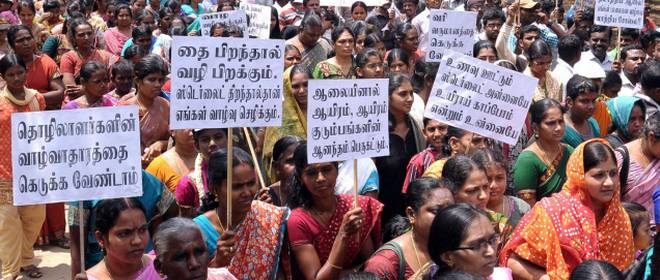Context:
-
A rally taken out to observe the 100th day of the anti-Sterlite factory protests at Thoothukudi turned violent, leaving 13 dead over two days.
Background of the incident
-
The protests are not new.
-
Sterlite Copper had to move from Ratnagiri in Maharashtra, after year-long protests by locals, to Thoothukudi in August 1994, with clearance from the Ministry of Environment and Forests (MoEF).
-
A licence to operate from the Tamil Nadu Pollution Control Board was granted in the late 1996. After locals began complaining of health issues such as headache, coughing and choking, blaming them on the discharge from the factory, it caught the attention of some politicians led by MDMK leader Vaiko and environmentalists, who began organising the community.
-
In November 1998, the Madras High Court ordered the plant to be closed, but a week later the court modified its order and allowed the plant to run again, meanwhile asking the National Environmental Engineering Research Institute to conduct a study in the region. That turned out to be a clean chit for Sterlite.
-
Twelve years later, the court ordered the closure of Sterlite Copper, citing violations of law and for polluting the environment. Three days later, the Supreme Court stayed the order. In April 2013, the court slapped a fine of ₹100 crore on Sterlite Copper, but refused to shut it down.
-
The current wave of protests was triggered after the MoEF granted permission to build another plant right next to the existing smelter, without conducting the necessary public hearing. When construction began in July 2017, the protest resumed, and with the government failing to engage constructively with the local community, it snowballed into the anger that led to Black May 22.

What next?
-
The State has ordered closure of the company and revoked its grant of land. It has also appointed a retired High Court judge to probe the May 22 incident.
-
Members of the National Human Rights Commission have arrived at Thoothukudi to conduct their own probe.
-
Meanwhile, Sterlite Copper’s CEO P. Ramnath has said false propaganda has driven the protests, while the company has always been willing to engage with the environmentalists and the local community.
Note:
It is a good Case Study for Ethics. You can use it as an example in your answers.
Source: